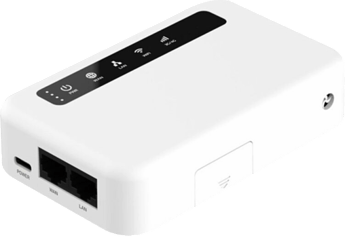I Build my Ultimate Privacy Kit and I invite you to join me, suggest, advise improvements
I am seeking privacy and security solutions to enhance my online protection. I want to create a Privacy Kit for daily use, and I believe this community can help me achieve that. One crucial aspect is ensuring a private and secure internet connection across all my devices, independent of internet service providers. I have come across a potential solution that claims to provide privacy right out of the box.
The goal is to have control over my online experience without being subjected to the influence or restrictions imposed by Internet service providers, whether they are home Internet providers, mobile operators or not. However, I face the challenge of finding a comprehensive hardware and software solution that can cater to both my home and on-the-go online sessions, providing an ultimate and unique mobile solution.
I’ve found this device - Kryptos Private Modem 4G Wi-Fi providing a Firewall and WireGuard out of the box for protecting your data by using advanced encryption.
I found it interesting and dug more into the research. I also got connected with the team members producing it and this is what I can share now:
| Privacy level | Built-in VPN and Firewall by default, data encryption |  |
| Mobility | Compact shape small plastic hull with a 5000 mAh battery that ensures uninterrupted autonomous operation for a few hours, useful for a backpack or a small pocket |  |
| Accessibility | Both home and mobile Internet providers are possible |  |
| Trusted battle test | Used for secure internet connection by the president of a country involved in a war |  |
Summary
-
Guys, I’m looking forward to hearing your opinions about the device. Let’s take a deep look together, as I’m not as SyberSec tech-savvy yet.
-
I can also invite a team member producing this type of device for a QA session. Let’s decide if it’s necessary.
-
It’s an interesting device, let’s discuss it more and create a QA with the device producer.
-
I’m skipping this device, not interested
0 voters


 I’ll also add Brave browser for ad blocking (works even on YouTube).
I’ll also add Brave browser for ad blocking (works even on YouTube). 